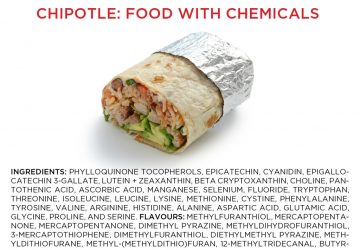 Genetically modified (GM) food may have the potential to feed an ever-growing world population, but it just can’t catch a break from activist scaremongering. Combine misinformed propaganda with trial lawyers who want to diversify their income out of the ambulance-chasing business, and food lawsuits are the inevitable result.
Genetically modified (GM) food may have the potential to feed an ever-growing world population, but it just can’t catch a break from activist scaremongering. Combine misinformed propaganda with trial lawyers who want to diversify their income out of the ambulance-chasing business, and food lawsuits are the inevitable result.
The latest target is Frito-Lay, which claims that its Sun Chips and Tostitos snacks are “all-natural.” They also apparently contain GM ingredients. The Frito-Lay suit isn’t the only one of its kind. A similar claim was filed in California last year. To the trial bar, it doesn’t matter that there’s no credible evidence that GM food is harmful, because they see a $5 million payday.
Interestingly, unlike the term “organic,” the word “natural” (with a few exceptions for meats governed by USDA labeling rules) is not formally defined under federal food labeling rules. (If Frito-Lay applied an “organic” or “GMO-free” label, it might be a different story.) If Frito-Lay is on solid regulatory compliance grounds, it wouldn’t be the first time that an activist food lawsuit came up empty. (Who’s betting that the media will notice if that happens?)
It’s worth noting as well that the principles behind genetic modification, including the manipulation of crop and livestock genetics for human benefit, are quite old. Gregor Mendel famously discovered the basic principles of hereditary genetics using pea plants back in the 1800s. Before that, farmers chose the best animals as breeding stock and planted the hardiest crops. The only aspect that changes with the scary-sounding science of GM crops is that selective breeding (human-assisted evolution) takes less time and more specific desirable traits can be promoted or inserted.
But don’t tell that to the trial lawyers or food activists. There’s money to be made, after all.




